■ Starring: Choi Kyung-ran Translator
* The text below may differ from the actual broadcast content, so please check the broadcast for more accurate information. Please specify [YTN News UP] when quoting.
[Anchor]
Analysts say that the power of translation, which fascinated readers from all over the world, is at the bottom of Han Kang's Nobel Prize in Literature. It is a hidden contributor who introduced Han Kang's poetic style and sensibility to the French language. Let's talk with translator Choi Kyung-ran. Hello, translator.
[Choi Kyung-ran]
Yes, hello.
[Anchor]
You're not in Korea, are you?
[Choi Kyung-ran]
I'm in Paris right now.
[Anchor]
If it's Paris, I think it's early in the morning. Thank you for connecting to the live broadcast even at an early time. I think the translator must have been surprised by Han Kang's Nobel Prize for Literature this time. How was it?
[Choi Kyung-ran]
I was actually very surprised, too. It was an achievement that no one expected, so I didn't even predict or do it, and I know that the announcement was made just after 13:00 local time. In my case, I got a message from a friend in Korea exactly two minutes later, so at 13:07. So at first, I was like, "What is this?" That's what I felt first, and it takes a little bit of time to figure out the situation. So at first, I felt very surreal, but the next moment, it's very touching.
[Anchor]
You translated Han Kang's book last year, what kind of work was it?
[Choi Kyung-ran]
Last year, the publisher translated and released a book called I'm Not Saying Goodbye.
[Anchor]
The book "Never Say Goodbye" even won the Medici Award, and I'm also curious about the reaction to readers in France.
[Choi Kyung-ran]
I think there was a certain effect of the Medici award. In fact, in France, people read a lot of books by their own authors, and in fact, foreign literature is not very active. And even so, it's mostly skewed towards Anglo-American areas. British-American or European-American or European-American writers. Asian literature is a little distant, and moreover, among Asian literature, pure literature, and white literature in French. These works tend to be a little far from the public, but as I said earlier, the effect of the Medici Award seems to have been a bit effective, so at the end of the year, more than 10,000 copies of what I heard from the publishing editor were published at the end of the year. He was very satisfied with it. So, as a foreign literature and pure literature, the sales volume is very remarkable, I think they evaluated it like this.
[Anchor]
Is there anything special about Han Kang's book as a translator or something attractive?
[Choi Kyung-ran]
It's attractive.
[Anchor]
What did you find attractive?
[Choi Kyung-ran]
I'm giving you a personal opinion, but in a word, it was such a beautiful work. There are people who say that it's a little difficult for some people. You might feel that way. Because of the theme and the characteristics of the artist, it might seem a little difficult because it's a work that has the courage to dig deep into the inside of a human being, and that sensitivity and courage, but in my case, I was completely fascinated. Because it's so poetic and beautiful. I fell in love with it. I can say that I lived in that world while I was working on it for a while.
[Anchor]
Translation is what has to convey the emotions contained in the text, so translation is expressed as a second creation. How long did the translation take as an example of not saying goodbye?
[Choi Kyung-ran]
Usually, it takes about 6-7 months to finish the work. I think this book also took that much.
[Anchor]
Since this work itself contains the painful modern history of the Jeju 4.3 Incident, I think it was necessary to conduct a preliminary investigation or study on any historical background. How was it?
[Choi Kyung-ran]
Didn't this incident start to be known vaguely after the 2000s? So I just vaguely knew it through the media or other media, but I didn't know the details. But as you work on it, you need to know the background in detail to work on it. So while working, I went to the things I was curious about and studied a bit. But these days, you can find everything on the Internet, so it's convenient.
[Anchor]
There was also an article in which Han Kang said that the title of the French version of Never Say Goodbye was exquisite. It's impossible to say goodbye. I think you must have thought a lot about choosing the title.
[Choi Kyung-ran]
I've been thinking a bit. The meaning of the title itself was not a problem, but this is a matter of syntax, but in the case of French, there must be a subject. So English is like that, but when we do this, we don't say goodbye, I don't say goodbye, or someone doesn't say goodbye by clumping together like this, it's very awkward. So when I tried to find the most natural expression in French, which matches our original title the most, I couldn't write it in a sentence and eventually it became a noun phrase, so I thought about it for a while, but one day, a co-translator pushed me hard.
What should I do? What should I do if I'm pushed to the wall? Farewell that can't be done? Unfinished goodbye? An impossible goodbye? When I presented various things, I heard it and at that moment, he said, "It's impossible to say goodbye."
So it's been decided to do so. When we proposed the title to the publisher, the publisher was very satisfied with it.
[Anchor]
The title created in that way is impossible to say goodbye, but the structure is actually complicated and the Jeju dialect comes out. I think you must have thought a lot about how to move this part.
[Choi Kyung-ran]
I gave up on dialect from the beginning. Because there are so many ways of speaking, not just in dialect, but in one language. So, for example, various nuances arise depending on the degree of honorifics in Korean. So, everyday terms and academic terms are different, and the language is different between generations, and what we use and what children use are different. For example, the words used by the four godfathers of the Joseon Dynasty cannot be translated into French or French torture. There are a lot of different languages, including dialects. So in that case, you can't translate them into a different form, which is a dialect. It can't be taken like a decalcomani in France. So what's important in this case is that each dialect has the flavors that we have, the Korean dialects.
The key is to convey a certain intimacy or regret, or special humor, texture, coldness, almost taste and smell to French readers. So there's a lot of ways to do it. I think the key is not just words, but also to slightly change the form of expression, so that you can convey the closest emotion. That's how we proceeded.
[Anchor]
There was also an article that said that you have never asked the author about the content while translating this book, what is it like in general? Should I say that I often ask the author the intention of the sentence?
[Choi Kyung-ran]
There are times. It's not always like that, but sometimes the interpretation is a little... So when the sentence can be interpreted in an intermediate way. Or when you read the context and at some point it seems a little contradictory, this can happen.
Then I sometimes ask the writers questions, but this is not always the case. There are cases like that, but Han Kang's work is perfect from beginning to end. The question is very simple. The answer is very simple. There was no room for questions.
[Anchor]
I see. Han Kang's father, Han Seung-won, also thanked translators who saved the taste of words after the Nobel Prize selection. Many media companies are also shedding light on the power of translation, but I think you will feel very different about this atmosphere. How does that sound?
[Choi Kyung-ran]
I think it's a huge compliment to Han Seung-won for what he said. That's what I'll hear from you to do better in the future. But overall, the growing interest in translation is very encouraging for people like us and very welcome for us. As the number of Korean works that are awarded overseas gradually increases and they are often selected as candidates, I think I'm a little more interested in translation, which is of course appreciated by me. It's very desirable.
[Anchor]
With the award of Han Kang, there is a craze for buying books by Han Kang in Korea and now it is being pre-sold, so how is the atmosphere in France now?
[Choi Kyung-ran]
It's the same here. The editor said that we can't get it at the bookstore because we have some in stock. So I heard that you said you should take it again now, but I think the Nobel Prize is the same here because it seems that everyone in the world is interested in it. It seems that not only the most recent works of
, but also the other works of the artist that were published before, are now in the spotlight.
[Anchor]
In the future, you may hope that Korean literature will be loved in France, but you mentioned earlier that your own literature is the mainstream in France. Do you think Han Kang's acceptance of the Nobel Prize in Literature may have a positive effect on the overall spread of Korean literature in France?
[Choi Kyung-ran]
Of course, I guess so. As I just said, there's no Nobel Prize after that. It's about raising the level of the world's top. Anyway, when it comes to Nobel Prize-winning works, literature lovers and all libraries will have more opportunities to get close to many readers. In addition, interest and enthusiasm for Korean culture in general are increasing a lot around the world. Also, France is no exception, so there are a lot of people who like K-pop and K-drama here, and I think the base is expanding. So I think it's a great opportunity right now.
[Anchor]
Translator, I understand that today's interview is the first live media interview, but you accepted the interview even though it's early in the morning
[Choi Kyung-ran]
No problem, thank you.
[Anchor]
I talked with translator Choi Kyung-ran. Thank you for talking with me today.
[Choi Kyung-ran]
Thank you.
※ 'Your report becomes news'
[Kakao Talk] YTN Search and Add Channel
[Phone] 02-398-8585
[Mail] social@ytn. co. kr
[Copyright holder (c) YTN Unauthorized reproduction, redistribution and use of AI data prohibited]
Culture
View the full list of articles- "A poetic and beautiful piece of work"...They're reading books in France, too.
- [Atelier Y] Meaning of 'daily' derived from 'the scribble' – writer Mothfly
- The library is also "Han River Syndrome"...New week's lending ranking rises 442 places
- "The essence of Buddhist art" Jinguansa Temple's national landing site will be held from the 19th to the 20th.


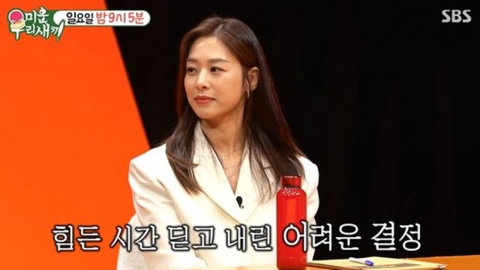
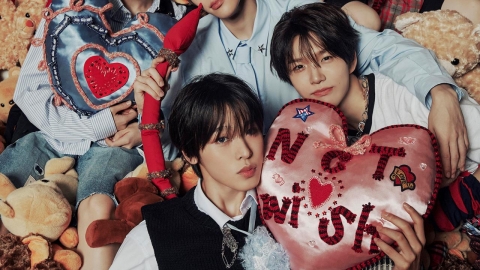
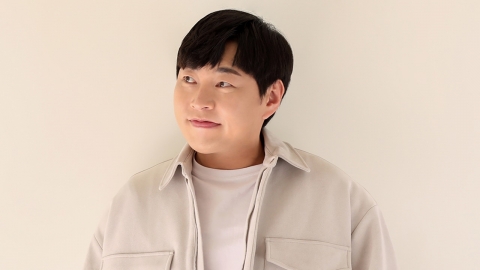
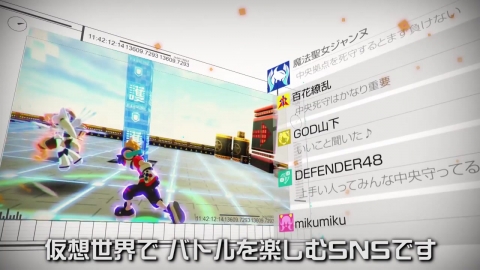
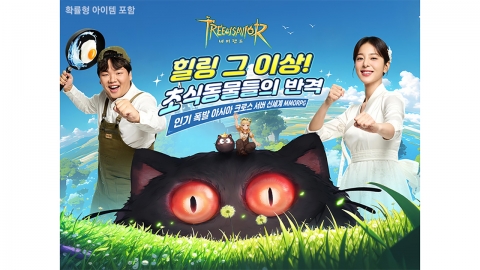
![[After playing the game] Between "Soul-like" and "Action-like"...Which one?](https://image.ytn.co.kr/general/jpg/2024/1011/202410111054554736_h.jpg)